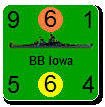Mike Dubost
Posts: 273
Joined: 8/24/2008
From: Sacramento, CA
Status: offline

|
quote:
ORIGINAL: OrvalB
Um, a slight correction; the US did indeed have or could have had artillery and aircraft available; the decision to ship men rather than material across the Atlantic was quite deliberate. At the time, the TE, particularly the French, had a ton of artillery, but were very short of bodies; what the TE needed from America was manpower, pure and simple, and were happy to provide artillery and airplanes and weapons and ammunition, if the yanks could just get more bodies Over There.
Which is a bit of why they got a little cheesed over Pershing's insistence on an American army fighting as a unit; the whole idea from their point of view was that the US would provide more bodies for their sausage machine.
In terms of the game, yes the US shows up too early & too strong most of the time, in terms of battlefield effect; however, historically, the psychological effect on the German generals is hard to overstate. Once the Yanks showed up in sufficient numbers, no matter how unskilled and supported, they pretty much knew their goose was cooked. The Meuse-Argonne could have gone a good deal worse than it did (which was pretty poor, actually), and it still would have essentially won the war. It just took a few tanks and a "Black Day" after that to tip the balance and turn the High Command into surrender monkeys. (And hello Adolf!)
Sorry about the delayed response (dang real life interfering with virtual interaction again, mumble, grumble  ). ).
Pershing's memoirs clearly indicate that the US did not have enough spare munition manufacting capacity. Partly this was due to it being tied up with (pre-US-entry) Allied orders, but still, they could not have given the US forces adeqate suplies without hurting the BEF or French Army. Furthermore, from the start until well into 1918, whole paragraphs are devoted to discussions of shipping constraints and disagreements over alocation of shipping. Even had more munitions been available in the US, it would have been hard to get them "over there".
This is why in the other thread, I suggested that Wilson deserved censure.
Granted, since this is a memoir, it is not to be mistaken for Gospel on all points. However, I don't see any gain to Pershing in the way he reported this situation, so I think we can accept it.
EDIT: I failed to note that Pershing also said very few military aircraft were being made in the USA at this time, and only a small number would be available prior to the expected 1919 campaign.
< Message edited by Mike Dubost -- 12/10/2008 3:17:22 AM >
|
 Printable Version
Printable Version







 ).
).  New Messages
New Messages No New Messages
No New Messages Hot Topic w/ New Messages
Hot Topic w/ New Messages Hot Topic w/o New Messages
Hot Topic w/o New Messages Locked w/ New Messages
Locked w/ New Messages Locked w/o New Messages
Locked w/o New Messages Post New Thread
Post New Thread